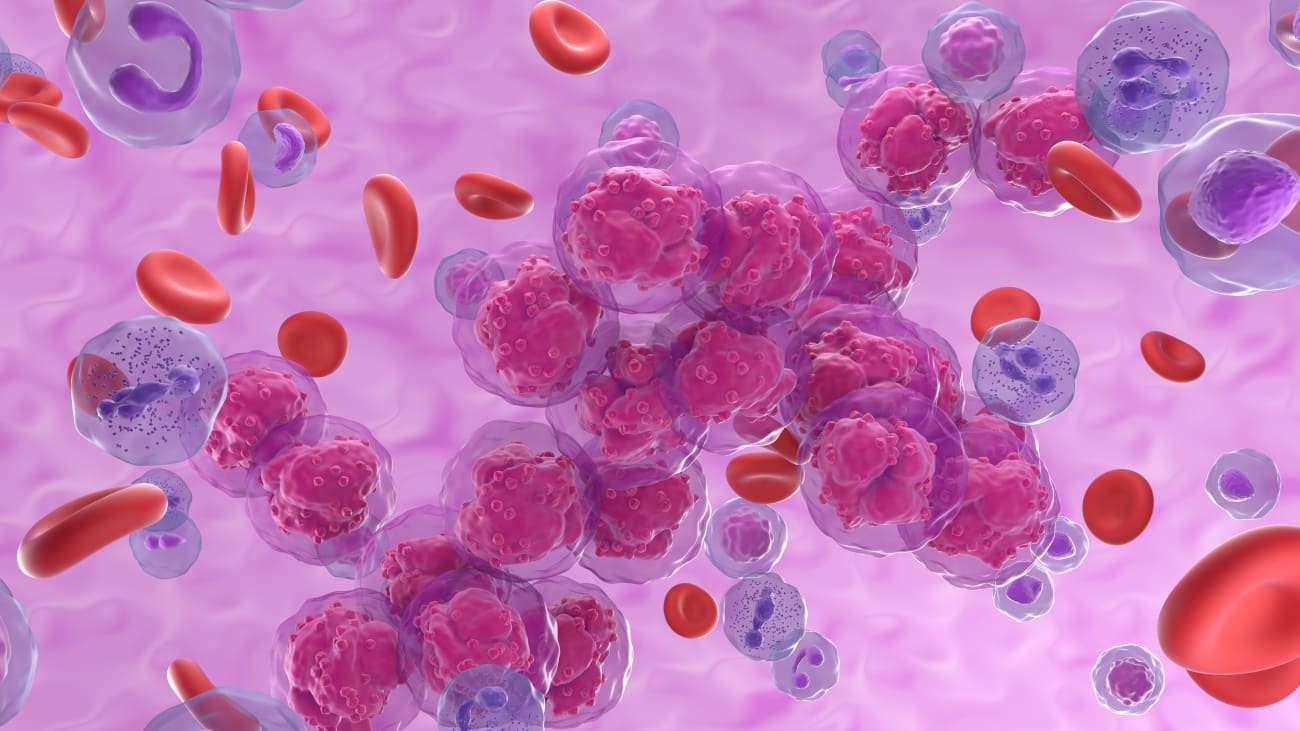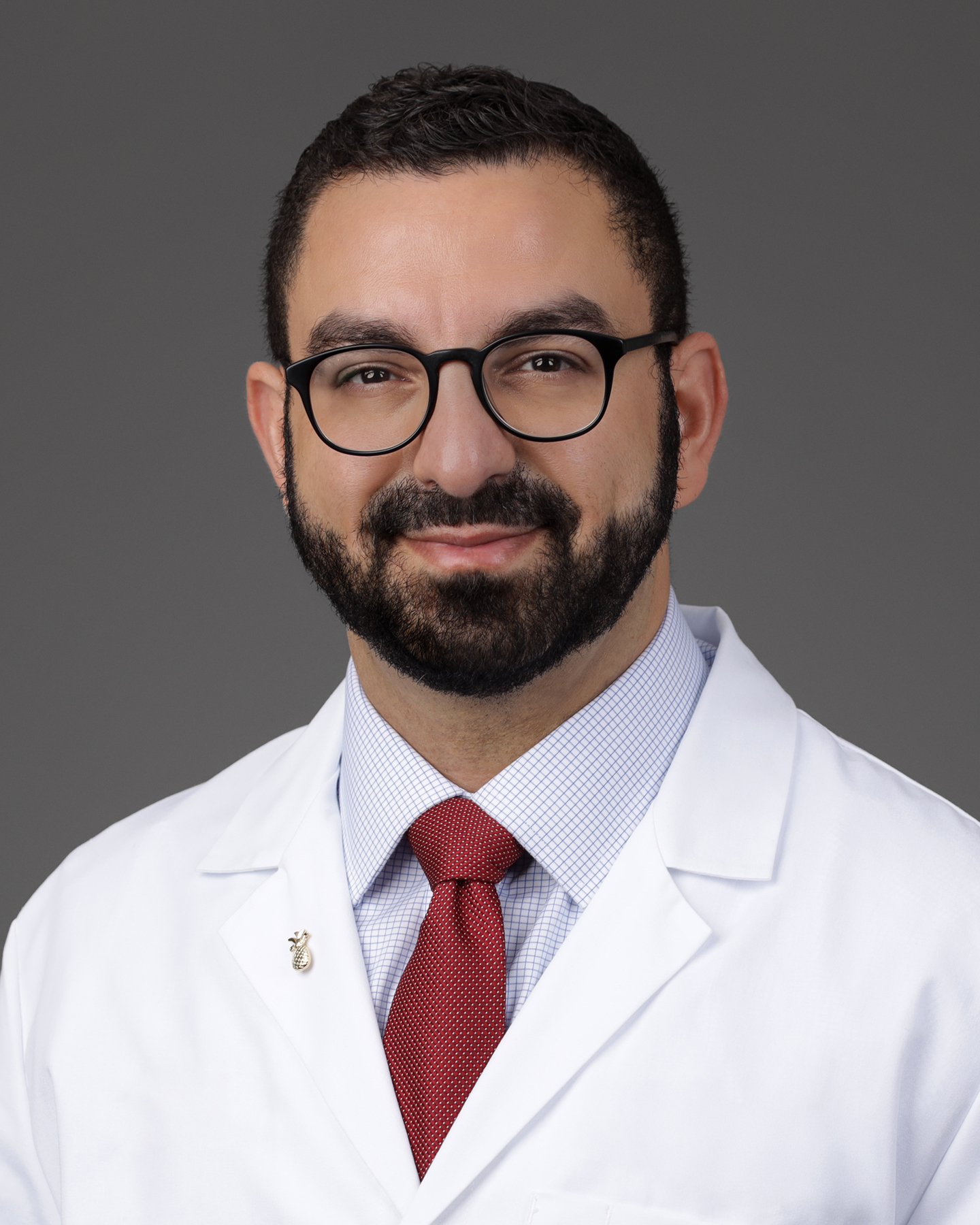

Ultra-sensitive blood tests now make it possible to detect measurable residual disease (MRD) at the single-cell level among millions of normal cells. Early detection is revolutionizing how physicians monitor progress in patients with hematologic malignancies and allow for preemptive intervention before relapse, significantly improving patient outcomes.
September is Blood Cancer Awareness Month. Two of the experts from Baptist Health Miami Cancer Institute, Guenther Koehne, M.D., Ph.D., deputy director and chief of hematologic oncology and stem cell transplantation, and Firas El Chaer, M.D., MSHCM, chief of the leukemia service and medical director of infusion services, recently sat down to discuss advances in care. See the entire Doc-to-Doc podcast here.
Blood cancers account for roughly 10 percent of all cancers diagnosed. And while survival rates have improved over the years, blood cancers such as leukemia, lymphoma, myeloma, myelodysplastic syndrome and myeloproliferative neoplasm can still be very complex to treat.

Guenther Koehne, M.D., Ph.D.
Precision era medicine
In the last decade, however, the therapeutic landscape has grown increasingly individualized, thanks to a better understanding of tumor genomics, molecular pathogenesis and immune evasion mechanisms. Cutting-edge laboratory techniques and developments in immunotherapy and targeted therapies are leading to a cure for some and longer survival for others.
“In blood cancer such as leukemia, myeloma or lymphoma, we are now able to specifically target mutations, even with oral therapy,” Dr. El Chaer said. “Many of these targeted therapies lack the side effects that we used to see with traditional chemotherapy. It controls the cancer, it provides good quality of life and it prolongs life.”

Firas El Chaer, MD.
Promising new treatments
Targeted therapies — drugs that attack specific molecules or pathways that cancer cells depend on to grow — and immunotherapies that harness the body’s own immune system to fight disease, are exciting and evolving treatments for blood cancers.
“Years ago, we used to have to tell patients, ‘We gave you all the drugs that we have.’ Now, we have a third line, a fourth line or a fifth line of treatment. We have another option, another alternative to present to the patient,” Dr. Koehne said.
Close monitoring of MRD by very sensitive blood tests also allows physicians to intervene more quickly than in the past, rather than waiting until the disease is in full relapse. “We’re very proud that we’re able to provide our patients with these forefront therapies and latest treatments, whether it’s FDA-approved or in a clinical trial,” Dr. El Chaer said.
CAR T-cell therapy, which essentially turns a patient’s own immune system into a powerful cancer-fighting weapon, is a focus of Dr. Koehne’s. In this innovative approach, doctors remove T-cells from the patient’s blood and genetically modify them to include a new marker that targets and kills the cancer cells when infused back into the patient.
Recent developments include dual-targeting CAR T-constructs that simultaneously engage CD19 and CD20 antigens, or CD19 and CD22 combinations, Dr. Koehne said.
“There are different ways for the tumor cell to escape immune recognition. They develop resistance mechanisms,” Dr. Koehne said. “So, there are new strategies now to try to prevent this escape mechanism by targeting two molecules at the same time.”
Physician-scientists are also researching the use of natural killer (NK) cell therapy in blood cancer patients, which involves collecting NK cells from the patient or a donor, enhancing them in the lab and infusing them into the patient. There, they patrol the body looking for abnormal cells and destroy them.
There is also growing work in the development of allogeneic, off-the-shelf NK products. Because they eliminate the time-intensive autologous manufacturing process, accessibility is expanded and treatment may be started immediately.
Actively leading clinical trials and participating in research studies remains essential for advancing the field and providing the most advanced care, according to Dr. Koehne. “We have exciting treatment approaches, and we now have long-lasting remissions in patients that we could not expect years ago,” he said. “Blood cancers remain among the most complex and rapidly evolving areas of medicine, requiring continuous learning and adaptation. Staying current is critical to delivering the best possible care.”

